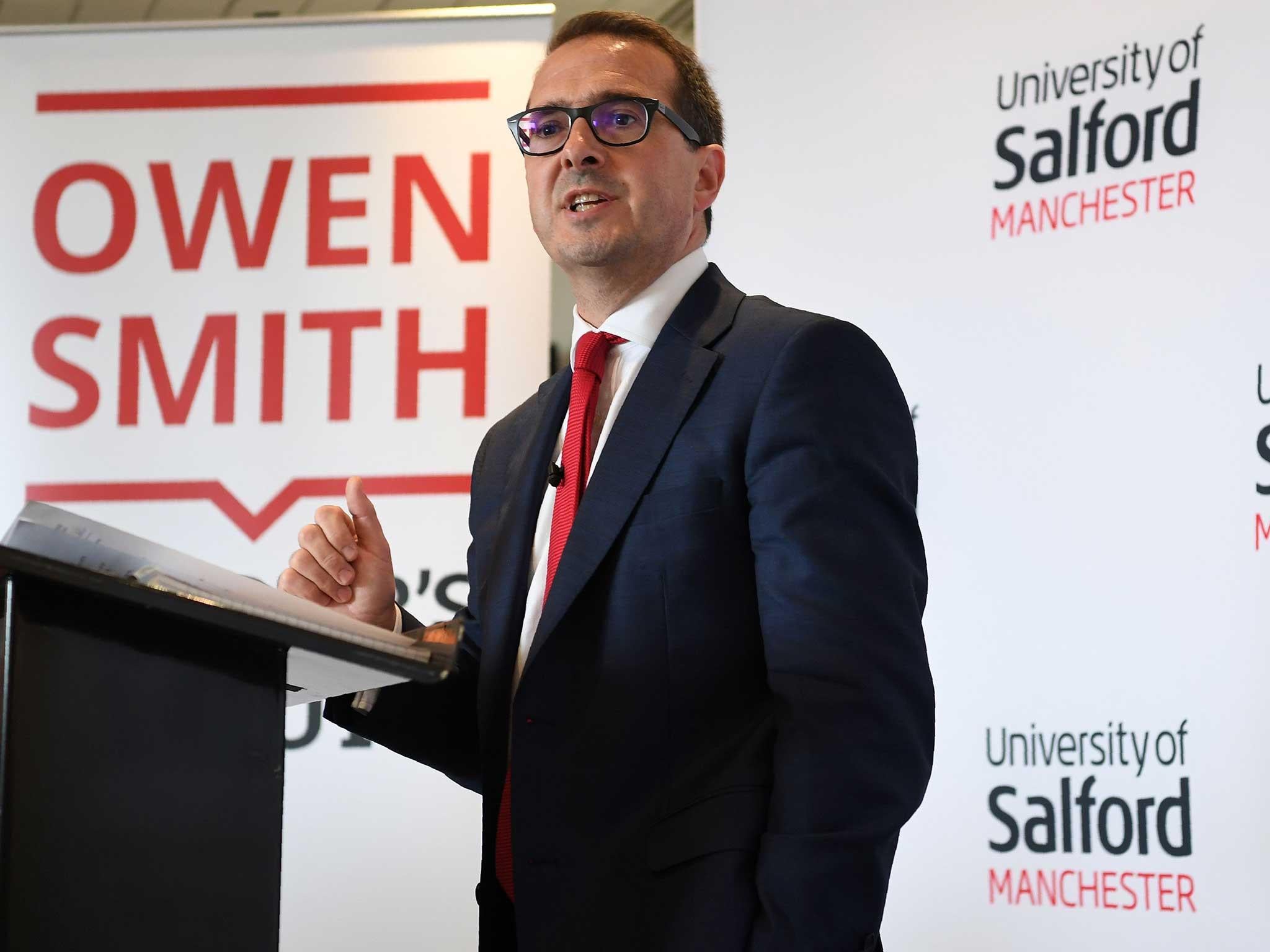Owen Smith just looks like a bitter Brexit loser by calling for a second referendum – on this issue, I agree with Corbyn
There is a fine line between continuing to fight for what you believe and disrespecting democracy


Your support helps us to tell the story
From reproductive rights to climate change to Big Tech, The Independent is on the ground when the story is developing. Whether it's investigating the financials of Elon Musk's pro-Trump PAC or producing our latest documentary, 'The A Word', which shines a light on the American women fighting for reproductive rights, we know how important it is to parse out the facts from the messaging.
At such a critical moment in US history, we need reporters on the ground. Your donation allows us to keep sending journalists to speak to both sides of the story.
The Independent is trusted by Americans across the entire political spectrum. And unlike many other quality news outlets, we choose not to lock Americans out of our reporting and analysis with paywalls. We believe quality journalism should be available to everyone, paid for by those who can afford it.
Your support makes all the difference.Owen Smith saw his chance and went for it. Once he had secured the right to be the sole challenger to Jeremy Corbyn – Angela Eagle was braver in declaring first, but he had more support from MPs than she did – he looked for an issue to separate Corbyn from the 250,000 Labour members and supporters who voted for him last year.
That issue presented itself: Europe. Large numbers of Labour supporters were disappointed by Corbyn’s feeble campaign to stay in the EU, but on the morning of 24 June that disappointment turned to shock and anger. YouGov polls of Labour members found that 90 per cent of them voted Remain.
Tim Farron saw his chance to draw attention to the Liberal Democrats as the most pro-EU party, saying their policy at the next election would be to rejoin. But Smith also saw his chance to set out a dividing line with Corbyn by advocating a second referendum when the terms of Brexit are known.
It is not as bad a policy as it looks, but it is a bad policy. It would be quite sensible to have two referendums, one on the principle of EU membership and another on the terms of the exit deal. There are big questions about our relationship with the 27 EU countries that are not resolved simply by deciding to leave: to what extent can we stay in the single market, for example? And if we want a lot of the single market’s benefits, are we prepared to pay in cash contributions to the EU budget or in the form of accepting free movement?
But that wasn’t the deal. If we needed a second referendum, that should have been specified before we went to the polls for the first one. It wasn’t. We voted to leave. It was an advisory referendum. It is up to the House of Commons to interpret that advice.
To say now that we need a second referendum looks like the complaint of a bad loser. There is a fine line between continuing to fight for what you believe and disrespecting democracy. Smith could have said, “Let us not rule out any options but focus on getting the best access to the single market that we can in the Brexit negotiations.”
But this is no time for subtlety: he is fighting for his political life and possibly for the survival of the Labour Party as a viable force. So he went all out for a second referendum and repeated his pledge this morning:
“Under my leadership, Labour won’t give the Tories a blank cheque. We will vote in Parliament to block any attempt to invoke Article 50 until Theresa May commits to a second referendum or a general election on whatever the EU exit deal emerges at the end of the process. I hope Jeremy will support me in such a move.”
I am not sure it will work. Yes, Labour members are enthusiastically pro-EU, but this looks not just undemocratic, it also smacks a little too much of political positioning. There may be a market for trying to reverse the result of the referendum, but it is a minority of the minority: 48 per cent voted to Remain, and 22 per cent think the Government should “ignore” or “seek to overturn” the result.
On this, I agree with Corbyn: I was a reluctant Remainer, but now that we have voted, the result must stand. The Labour Party is in no position to choose between “soft Brexit” (being like Norway, in the EU in all but name) and “hard Brexit”.
Theresa May has a mandate to negotiate Brexit terms. She thinks the referendum was an instruction to cut immigration, not to maintain access to the single market. And she is probably right.
Join our commenting forum
Join thought-provoking conversations, follow other Independent readers and see their replies
Comments